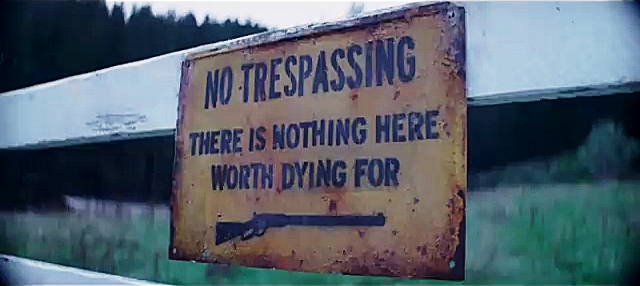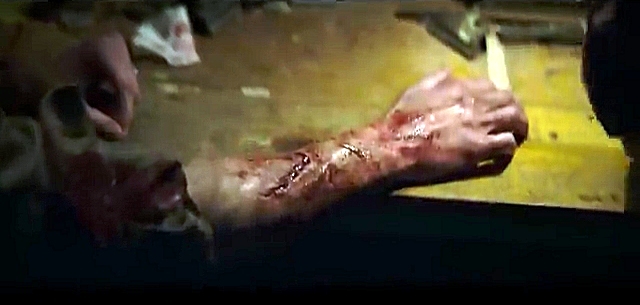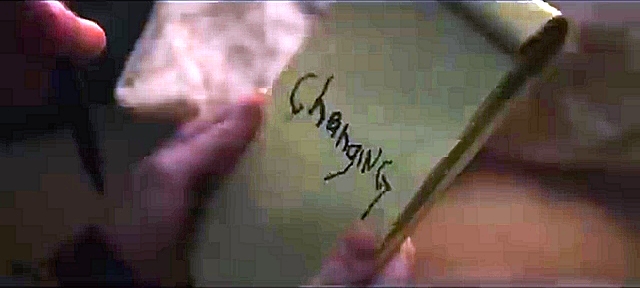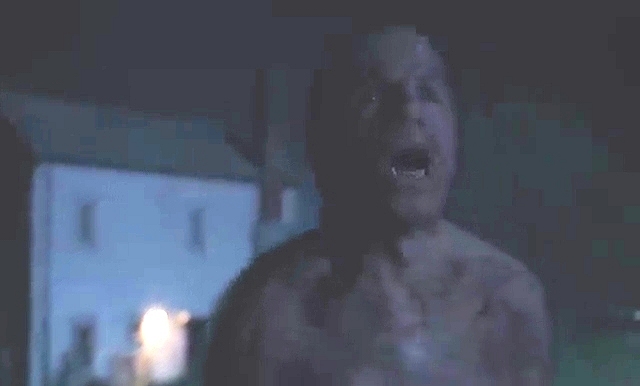Wolf Man and Universal Monsters
The Universal Monster series of films have been patchy.
The latest is Wolf Man but is it any good?
Jonathan Cowie enters the woods alone…
Wolf Man debuted in January (2025) and, given its mediocre IMDB and Rotten Tomatoes ratings (5.9 and 57% respectively), as well as January being the month studios tend to release films not expected to take much money post-the festive season, you may be wondering if it is any good? Well, before we get to that, it is perhaps worthwhile taking a bite into this offering's history…

Jump back the best part of a decade and Hollywood's Universal studios were casting an envious eye over the success of one of their rivals and the Marvel Cinematic Universe (MCU) films. Universal then realised that they owned the rights to Frankenstein, Dracula and Wolfman and so established their own 'Universal Monster' films. However, since then it has been a bit of a rocky ride.
Tom Cruise's The Mummy (2017, trailer here) reboot, for example, was a bit of an audience success but it had a big star and loads of effects hence was very expensive even if reasonably commercially viable with not too bad a box office showing (taking £332.5 million/US$409m on a cost of £101.5m/US$125m). So profit-wise, it took a big upfront investment for its substantive return, a gamble that makes studio executives nervous as such do not always pay off. With Wolf Man (2025) some at Universal must have had déjà vous as The Wolfman (2010, trailer here) cost £122m/US$150m but only took £117m/US$144m: big investments are no sure guarantee of a return and this one made a loss. Perhaps it was with this last in mind that Universal were a tad wary of venturing back into were-wolf land: no big upfront investment for Wolf Man but hopes instead for a solid return on a comparatively modest investment.
Here, Universal had form. In 2020 The Invisible Man did surprisingly well (budget just £5.7 million/US$7m but it accrued a global revenue of £118million/US$145m) despite it only having a few weeks in the cinema before CoVID-19 lockdowns: it was both hugely successful and surprisingly so. Though SFnally, it is best said that it was perhaps 'inspired' by the H. G. Wells' story rather than 'based' on it (The Invisible Man trailer here).
This success buoyed the studio but, alas, fortune was not with them, the Dracula spoof horror Renfield (2023, trailer here) flopped (it made a substantive loss having accrued less than half its £52.8m/US$65m budget with a global revenue of £21.5m/US$26.5m): though for my money it deserved to do a little better at the box office, but its sizeable and big-name cast, plus plenty of special effects, did not make it profitable. Indeed, there are tales that its makers were not sure as to what sort of film they were making: apparently a musical dance number in the night club scene was dropped, so goodness knows the cost of whatever else there was hitting the cutting room floor.
Taking all this together, you can see that Universal were by now very wary of their next horror monster film, another were-wolf re-boot. Indeed, saying that they were nervous is arguably something of a British understatement. And so it was only at the start of last year that Wolf Man, which was well into pre-production but not actual production, saw Universal falter. Originally, the best part of a decade ago(!) Universal hired Aaron Guzikowski to write the screen-story. Apparently, that screen-story did not go down well with Universal's powers-that-be as in 2021 Derek Cianfrance was set to direct and Ryan Gosling to star, but that would not last. Around Christmas, as 2023 came to a close, Derek Cianfrance was replaced by director Leigh Whannell (who also directed the aforementioned, hugely profitable The Invisible Man) and Christopher Abbott replaced Ryan Gosling to star (though Gosling would stay on as an executive producer).
Which brings us up to the present and the Wolf Man film we get. The cast was kept minimal: just six actors playing five characters having more than three lines and I am told filming was done in New Zealand (in a scenic glacial valley), which has plenty of tax breaks for film makers. And the film was made quickly: under a year (not much time to fritter away cash)! Its budget was £20 million (US$25) and apparently it broke even in the first fortnight of its release. So, is it any good?
Well, to my mind, it is not bad, but frustratingly not good either: I can see why it gets middling IMDB and Tomatoes scores.

Probably best to take the hint
It opens with a few lines of screen text info-dumping in very annoyingly small font size which means that, if you are not watching it at the cinema, you are going to need a large, flat screen TV to have half a chance of reading it unless they release a special 'for-TV' version. Anyway, we are told that apparently, historically, US Indians in the Oregon area were long aware of a disease they called wolf face, and then in the modern era a hiker went missing. Finally, the locals say that there is a terrible creature lurking in the woods… So, within the first two minutes you have the set-up explained prior to a 15 minute opening act... Then, after that, we get a jump forward in time and the former child, to which we were initially introduced, is now grown up and living in a city with his wife and daughter. He gets a letter informing him of his father… And from that moment on, barely 15 minutes into the film, this offering's plot arc is plain for the cinematically literate to see… In short, there are no plot surprises and – for the benefit of the cinematically illiterate – at the beginning of the final scenes, in a few sentences from the mother, there is an explanation given to the daughter (and which spoon-feeds the film's viewers)…
Plus points, the acting is not bad, some of the effects, while not spectacular, are fine and there are also a couple of interesting point-of-view scenes. In short, Wolf Man is perfectly watchable, but I can't see this one getting any fantastic film awards or even be short-listed for a Hugo. But I can see it turning a good profit, though not the big bucks of a blockbuster, for Universal.
This last may be enough to keep 'Universal Monster' films on track.

Just a wee scratch
OK. So this is a perfectly serviceable horror, but is it a good werewolf film? Here we might reflect that the success of The Invisible Man (2020) (remember, that film's director, Leigh Whannell, directed this one too) despite being very different to H. G. Wells’ original, did stick to the core of what made the Wells' story great: power corrupts and great power greatly corrupts with invisibility being a great power. That that film turned on Wells' vision, with the point-of-view being the victim (not the mad scientist) who then used that power against the villain, so subverting the form, hence making 2020 The Invisible Man a post-modern take on the original.
Now, with werewolf films there are usually a number of central conceits. For example, we do not necessarily know from the off who is the werewolf as for non-full Moon nights they appear as normal humans. Secondly, the person who is the werewolf is struggling with the animal within: the metaphor being that we civilised humans are at heart biological animals. And then there are the optional frills such as whether or not werewolves are vulnerable to silver.

Just the one transformation
Wolf Man is different, we know within the first few minutes that were are not dealing with a traditional werewolf as we see the creature in daylight. Second, there is not any transformation back to human form: in this film the wolf is a 'sickness'; it could easily have been a variation of a zombie. Therefore, this is not a werewolf film! To my mind if Universal Studios really wants to make a go of Universal Monsters, it needs to understand why its original intellectual property was so successful: it did not do this with this film! So while it may make a reasonably, if not good, return on its modest investment, I don't expect a great audience reaction. Of course, for Universal (or any studio) it is the bottom line return on their investment that counts, and while there is a relationship between this and audience reactions, it does not guarantee a film becoming a cult classic. (Indeed cult classics can come from box office flops.)
Why Leigh Whannel – who was not only the film's director, but the screen-story's co-writer – chose to depart from werewolf tradition is something about which we can only speculate. We do know that he must have come up with the screen-story fairly quickly, so perhaps Universal's brief to him was to simply make a quick, low-budget horror that turns a profit?

A hairy moment…
So, what's next for 'Universal Monsters'? Well, looking a fair way down the line Universal recently let it be known that it was considering re-booting The Creature from the Black Lagoon (the original's trailer here).
Meanwhile, if you want a really good, fairly recent (actually a quarter of a century old which shows my age), werewolf film, then you could do no worse than Neil (The Descent, Doomsday) Marshall's Dog Soldiers (2002, trailer here). Dog Soldiers is arguably to core werewolf films as Aliens (1986) is to Alien (1979): Dog Soldiers has a platoon of soldiers trying to survive the night being preyed on by a small pack of werewolves.
You can see Wolf Man's (2025) trailer here.
[Up: Article Index | Home Page: Science Fact & Fiction Concatenation | Recent Site Additions]
[Most recent Seasonal Science Fiction News]
[Convention Reviews Index | Top Science Fiction Films | Science Fiction Books]
[Science Fiction Non-Fiction & Popular Science Books]